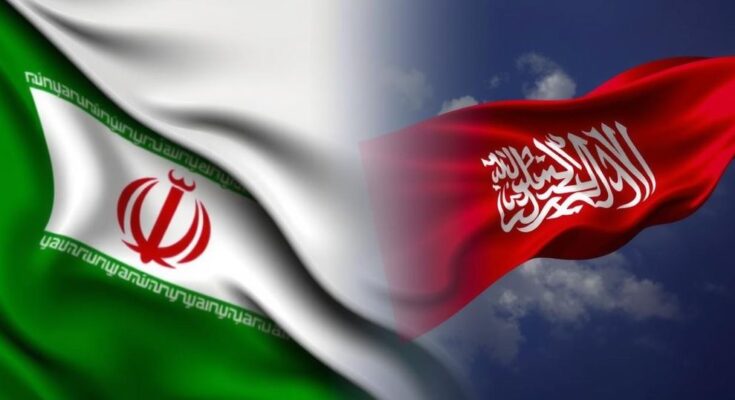Iran and Saudi Arabia are planning to conduct joint military exercises in the Red Sea, as reported by Iranian media, indicating a historic cooperation between the two rival nations. This follows their resumption of diplomatic relations after a five-year rift. While the Iranian navy commander confirmed consultations are being held, Saudi Arabia has yet to comment on the proposal. The backdrop includes increased maritime attacks by Yemen’s Huthi rebels amid regional tensions.
Iran and Saudi Arabia are reportedly preparing to conduct their first joint military exercises in the Red Sea, as per an unverified report from Iranian media. This development comes in the context of a complex regional relationship, characterized by longstanding rivalries that escalated in 2016 when the two nations severed diplomatic ties. However, following a surprising agreement brokered by China last year, both countries resumed diplomatic relations. Admiral Shahram Irani, the commander of the Iranian navy, indicated that Saudi Arabia has proposed the organization of these joint exercises and stated that “Coordination is underway and delegations from both countries will hold the necessary consultations on how to conduct the exercise,” although specific details and timelines were not disclosed. As of now, Saudi Arabia has not confirmed this collaboration. The backdrop to this development includes ongoing hostilities in the region, particularly with Yemen’s Iran-aligned Huthi rebels, who have been actively targeting maritime vessels in the Red Sea and Gulf of Aden. These actions, characterized by the Huthis as a demonstration of solidarity with the Palestinian cause during the current Israel-Hamas conflict, have heightened tensions in the area. Saudi Arabia, which supports Yemen’s internationally recognized government, has faced challenges in balancing its involvement in the Yemen conflict whilst being cautious about further escalation. The kingdom has not aligned itself with the United States in forming a naval coalition against Huthi incursions and has struggled in its attempts to mediate a peace agreement due to the ongoing maritime attacks.
The geopolitical landscape of the Middle East has historically been marked by tensions between Iran and Saudi Arabia, shaped significantly by religious divides—as Iran is predominantly Shiite and Saudi Arabia is Sunni. The breakdown of diplomatic relations in 2016 was fueled by mutual suspicions and policy disagreements, with both countries supporting opposing factions in various regional conflicts, particularly in Yemen. The resumption of diplomatic ties last year, facilitated by China, was seen as a potential thawing of relations. The planned joint military exercises represent a notable shift in this dynamic, signaling a possible realignment in regional security cooperation amidst shared concerns about maritime security and the threats posed by the Huthi rebels, who have intensified their operations against shipping routes in response to the ongoing Israel-Hamas conflict.
In summary, the potential joint military exercises between Iran and Saudi Arabia mark a significant step in re-establishing cooperative engagements between the two historically rival nations. This development, which follows the resumption of diplomatic ties under a China-mediated agreement, could reflect a strategic attempt to address mutual security concerns, particularly in light of the Huthi rebellion’s maritime aggression. However, the absence of confirmation from the Saudi side leaves uncertainties about the implementation of this initiative.
Original Source: www.barrons.com




